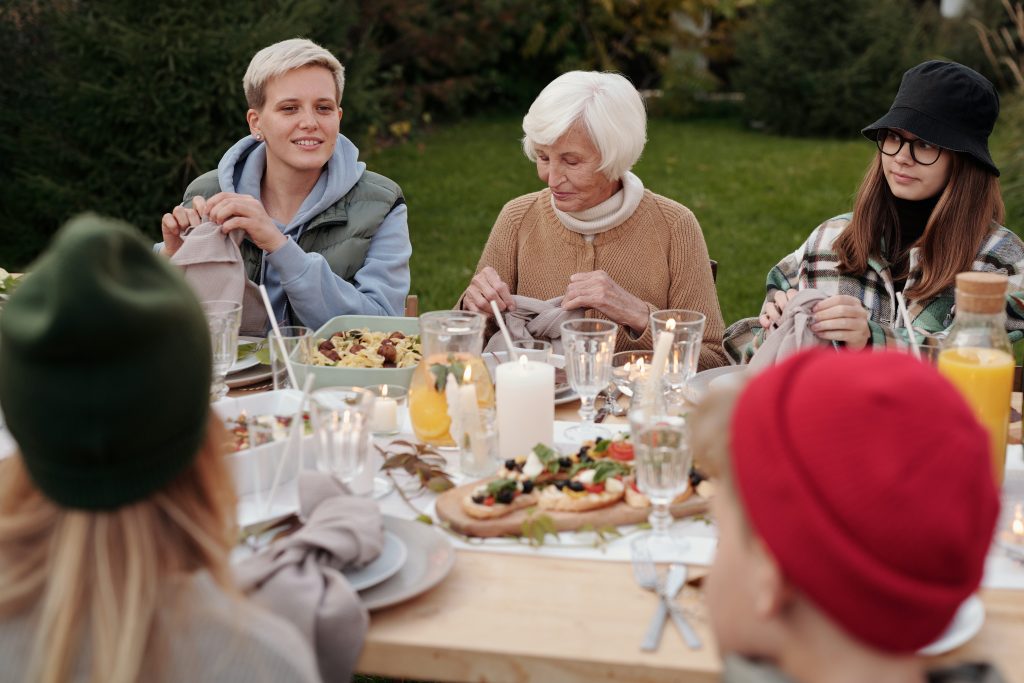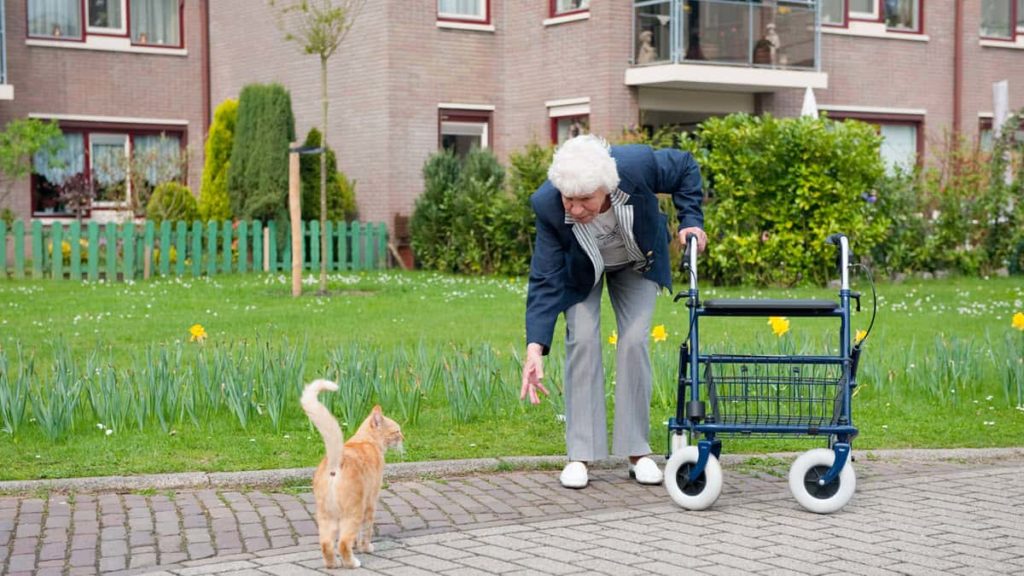Natural Appetite Stimulants for Elderly: Strategies, Tips and Tricks to Boost Appetite
For older adults, this can be particularly concerning as poor nutrition can lead to further health complications and unintentional weight loss.
Fortunately, there are various natural methods to help boost appetite in seniors. From ginger and citrus fruits to strategies to encourage eating, it’s important to understand the causes of decreased hunger so that caregivers know how best to encourage healthier eating habits among those they care for.
Join us as we explore the topic of “appetite stimulants for elderly” and uncover tips on helping increase appetites in older adults.
Table of Contents:
- Causes of Appetite Loss in Seniors
- Natural Appetite Stimulants for Elderly
- Strategies to Encourage Seniors to Eat
- Benefits of Increasing Appetite in Older Adults
- FAQs About Appetite Stimulants for the Elderly
- Conclusion
Causes of Appetite Loss in Seniors
Loss of appetite in the elderly is a common issue that can have multiple causes. Physical ailments, psychological issues, medication, unhealthful dietary habits, and emotional factors such as loneliness can all bring about a lack of appetite in seniors as we age.

1. Physical Health Conditions:
A variety of physical illnesses or diseases may contribute to a decrease in appetite and unintentional weight loss. For example, cancer and its treatments often cause loss of appetite due to nausea or changes in taste and smell.
Additionally, chronic pain from arthritis, musculoskeletal issues, or poor dental health can make eating less appealing for seniors who have difficulty chewing, and swallowing, or who have difficulty with using cutlery.
2. Mental Health Conditions:
Depression and anxiety can result in reduced interest in food consumption due to feelings of sadness, loneliness, and isolation as well as a lack of energy associated with these disorders.
Dementia-related illnesses such as Alzheimer’s disease may cause disorientation when it comes to meal times which leads to skipping meals altogether.
3. Medication Side Effects:
Medications can inhibit seniors’ appetite in several ways:
- Reduced desire for food as a side effect (anorexia)
- Interfering with nutrient absorption leading to nutritional deficiency which can decrease appetite
- Side effects such as dry mouth which makes it difficult to swallow
Common drugs known for causing a loss of appetite include chemotherapeutic agents used during cancer treatment, steroids taken for inflammation control, opioids prescribed for pain management, etc.

4. Poor Nutrition Habits:
Poor dietary choices such as consuming processed foods high in sugar instead of nutrient-dense whole foods will ultimately lead to nutritional deficiencies which then results in decreased hunger levels over time amongst senior citizens.
5. Social Factors:
Seniors may not feel driven to eat when lacking social contact, potentially leading to a decrease in daily caloric intake and weight loss.
6. Inability to Prepare Meals:
If your loved one lives alone, they may not have the desire or capability to prepare meals on a daily basis and therefore skip meals as a result.
It is essential to be conscious of the different sources of decreased appetite in elderly people, to make sure that proper measures are implemented and health threats reduced. Natural ways to increase appetite in the elderly can also provide a safe and effective solution for those looking to improve their overall nutrition intake.
Natural Appetite Stimulants for Elderly
Older adults commonly have a reduced desire for food, which can bring about health issues. Fortunately, there are natural appetite stimulants that can help improve their appetites and overall wellbeing.

- Ginger– one of the most effective natural appetite stimulants for seniors. It has been used as an herbal remedy for centuries and contains compounds that boost digestive health. Ginger also has anti-inflammatory properties that can reduce nausea and other symptoms associated with poor digestion or loss of appetite. For an appetite boost, try incorporating freshly grated ginger into soups or stews, or brewing it as a tea.
- Citrus fruits – like oranges, lemons, limes, and grapefruits are also great sources of vitamins A and C which can increase energy levels while providing essential nutrients needed by seniors’ bodies to function properly. Citrus fruits contain citric acid which helps break down proteins in food faster making them easier to digest; this increases the feeling of fullness after eating meals thus stimulating seniors’ appetites naturally over time when eaten regularly.
- Spices like cayenne pepper can heat up the body, increasing blood flow and digestion which leads to better nutrient absorption from meals. This results in feeling more satisfied after eating, naturally stimulating hunger levels over time without any negative side effects on seniors’ health. Spices are also a great way to add flavor to meals while using less salt.
- High-protein foods such as lean meats like chicken breast are an invaluable source of amino acids, acting as the building blocks for cells to regenerate faster while providing much-needed energy during exercise sessions.

This helps seniors stay fit and active longer than average life expectancy by consuming a nutritious diet rich in protein along with nutrient-dense vegetables like kale and spinach. In other words, these proteins provide the fuel they need to keep on going.
Utilizing natural appetite enhancers can be a great aid for elderly individuals to stay healthy and energetic, however, it is imperative to bear in mind that they should always be utilized along with an appropriate diet. Strategies such as changing the presentation of food or providing healthy snacks between meals can also play an important role in increasing seniors’ appetites.
Strategies to Encourage Seniors to Eat
Making Mealtime Enjoyable:
Eating should be a pleasant experience for seniors. To make mealtime enjoyable, caregivers can offer choices of food that the senior likes to eat and serve meals in an attractive way.
It’s also important to provide companionship during meals. Social interaction at meal times helps to build connection, tame isolate, and is a benefit of living with elderly parents.
By engaging with the elderly about topics of interest or simply talking about daily activities, you provide a nurturing atmosphere that promotes good eating habits around the table.

Eating Smaller Meals More Frequently:
Eating five or six small meals instead of three large ones will help keep seniors energized and encourage them to eat more often without feeling overly full or bloated. Adding flavor enhancers like spices, herbs, and condiments can make food taste better while also increasing hunger levels.
Additionally, providing nutritious snacks between meals will give them something enjoyable yet nourishing when they are not feeling hungry enough for full meals.

Snack suggestions:
- Full-fat yogurt with muesli or granola
- Diced fruit like watermelon, pear, and kiwi
- Berries
- Sliced cheese
- Crackers with cream cheese
- Avocado with a sprinkle of salt
Creating a Pleasant Eating Environment:
Creating a pleasant dining environment is one way to encourage seniors to eat more regularly. Caregivers should set up meals in an inviting atmosphere with comfortable seating and attractive table settings so that seniors feel motivated to eat.
Offering Variety in Food Choices:
Serving familiar foods is important but offering variety is key as well. Try introducing new flavors, textures, and colors into meals for seniors who are able to try them out without risking choking hazards or health complications due to allergies or sensitivities. The easiest way to do this is to try and make sure that they are eating at least 3 – 5 different colors a day:
- Reds (tomatoes, bell pepper, watermelon, strawberries)
- Orange (carrot, sweet potato, winter squash)
- Yellow (corn, lemon, banana)
- Purple (eggplant, plums, purple cabbage, blueberries)
- Green (lettuce, spinach, kale, pak choy, celery)

Involving Seniors in Meal Preparation:
Cooking with seniors is not only fun but it encourages them to take part in meal planning and preparation which helps build their appetite as well as gives them something meaningful to do throughout the day. Caregivers can involve seniors by having them choose recipes, measure ingredients, mix batters, knead doughs, etc., depending on their level of ability and physical condition.
Meal Delivery Services:
Meal delivery services can be a lifesaver in situations where a senior lives alone, or a caretaker does not have the time to be cooking nutritious meals on a daily basis. Meals from services such as Silver Cuisine are designed to be nutritious, tasty, and quick to prepare (just heat and eat) – too easy!
By creating a pleasant eating environment, providing variety in food choices, and involving seniors in meal preparation, it is possible to make mealtimes enjoyable for elderly people. Additionally, nutritional supplements can help provide the necessary nutrients that may be lacking in their diets.
Benefits of Increasing Appetite in Seniors
Increasing appetite in seniors can have several positive benefits. The most important is improved nutrition, which helps to maintain overall health and wellbeing.
Proper nutrition helps keep the body functioning properly, helps maintain a healthy weight, and provides energy for daily activities. Eating regularly also reduces feelings of fatigue or low energy levels and helps to protect against age-related diseases such as osteoporosis, cardiovascular disease, and muscle loss.

Regularly eating meals with adequate amounts of protein, carbohydrates, fats, vitamins, and minerals will help promote a healthy lifestyle, and avoid issues caused by malnourishment.
Eating regularly with a companion has been proven to be an effective remedy for depression symptoms that many older adults experience due to isolation or living far away from friends and family.
Social interaction while dining can help stimulate conversation, which in turn encourages them to consume more meals than if they were eating solo at home all the time.
Furthermore, regular nutrition has been associated with improved cognitive capacities such as increased memory recall and problem-solving capabilities – especially advantageous for those battling dementia or Alzheimer’s Disease later in life.

Last but not least – enjoying delicious food is always a great way for seniors to stay motivated about eating. Trying out new recipes now and then keeps things interesting so they don’t get bored with the same old dishes day after day; experimenting with different flavors might even bring back fond memories when it comes time to sit down at the table each night.
By stimulating appetites, caregivers can ensure that their elderly loved ones are receiving the proper nutrition and hydration necessary for optimal health.
FAQs about Appetite Stimulants for Elderly
Is there an appetite stimulant for the elderly?
Yes – there are many appetite stimulants for the elderly. There are prescription medication options (e.g., megestrol acetate and cyproheptadine hydrochloride) and natural remedies (e.g., ginger root extract and capsaicin). They work to stimulate appetite by increasing hunger signals from the brain or affecting digestion hormones in the gut.
Appetite stimulants can help to improve nutrient intake in seniors who have lost their desire to eat due to age-related conditions or other factors. However, for the best outcomes and safety, these should be taken under a doctor’s supervision.
What is a natural appetite stimulant for elderly?
Natural appetite stimulants for the elderly are ways to increase a person’s appetite without the use of medication. Natural appetite stimulants include:
- Consuming smaller, more frequent meals throughout the day
- Increasing dietary fiber intake
- Drinking plenty of fluids and avoiding caffeine
- Adding spices to food to enhance flavor and smell
- Eating with others or engaging in social activities while eating
- Exercising regularly as it increases metabolism and stimulates hunger hormones
Additionally, speaking with a doctor about nutritional supplements may be beneficial.
What appetite stimulant for elderly with dementia?
Seniors with dementia may experience difficulty in maintaining a healthy appetite. Stimulants such as nutritional supplements, meal replacement shakes and drinks, small frequent meals, and texture-modified foods can help to increase caloric intake.
Nutritional counseling from a registered dietitian is recommended to ensure the senior is receiving adequate nutrition. Finally, ensuring meals are presented in a pleasant atmosphere familiar to the patient may also encourage them to eat more.
What to do when an elderly person has no appetite?
If an elderly person has no appetite, it is important to identify the cause. Possible causes may include depression, medication side effects, poor dental health, or difficulty swallowing. It is advisable to consult a physician to uncover the root of the issue and tackle any medical matters.
Additionally, serving smaller meals regularly throughout the day that are nutritious and easy to eat can be beneficial. A dietician can also provide helpful advice on creating nutritious meal plans tailored to individual needs.
There are also meal delivery service options that simplify preparing healthy, nutritious, and quick-to-serve meals. Finally, socializing during mealtimes and involving seniors in food preparation can help stimulate their appetites as well as create positive memories associated with eating.
Conclusion
The elderly can often face difficulties with a loss of appetite, but there are many ways to increase it. Appetite stimulants for elderly should be used in conjunction with strategies that encourage seniors to eat, and nutritional supplements tailored specifically for them.
With careful consideration of dietary needs, an increased appetite is possible so that they may enjoy their meals again and reap the benefits of living through their golden years with good health.
Finally, staying aware of any medical conditions affecting appetite levels is crucial as some illnesses require special dietary adjustments that must be taken into consideration when planning meals and snacks. This includes making sure all ingredients used are appropriate based on the doctor’s recommendations.
By keeping these tips in mind, caregivers can do everything possible within their power to help increase their senior loved one’s appetites safely and effectively, so everyone involved feels satisfied after each mealtime experience together.
Vera James currently cares for her 90-year-old mother-in-law.
She is also a senior herself and loves sharing stories and resources to help other seniors, particularly who are in the position of caring for an elderly parent, like herself.





